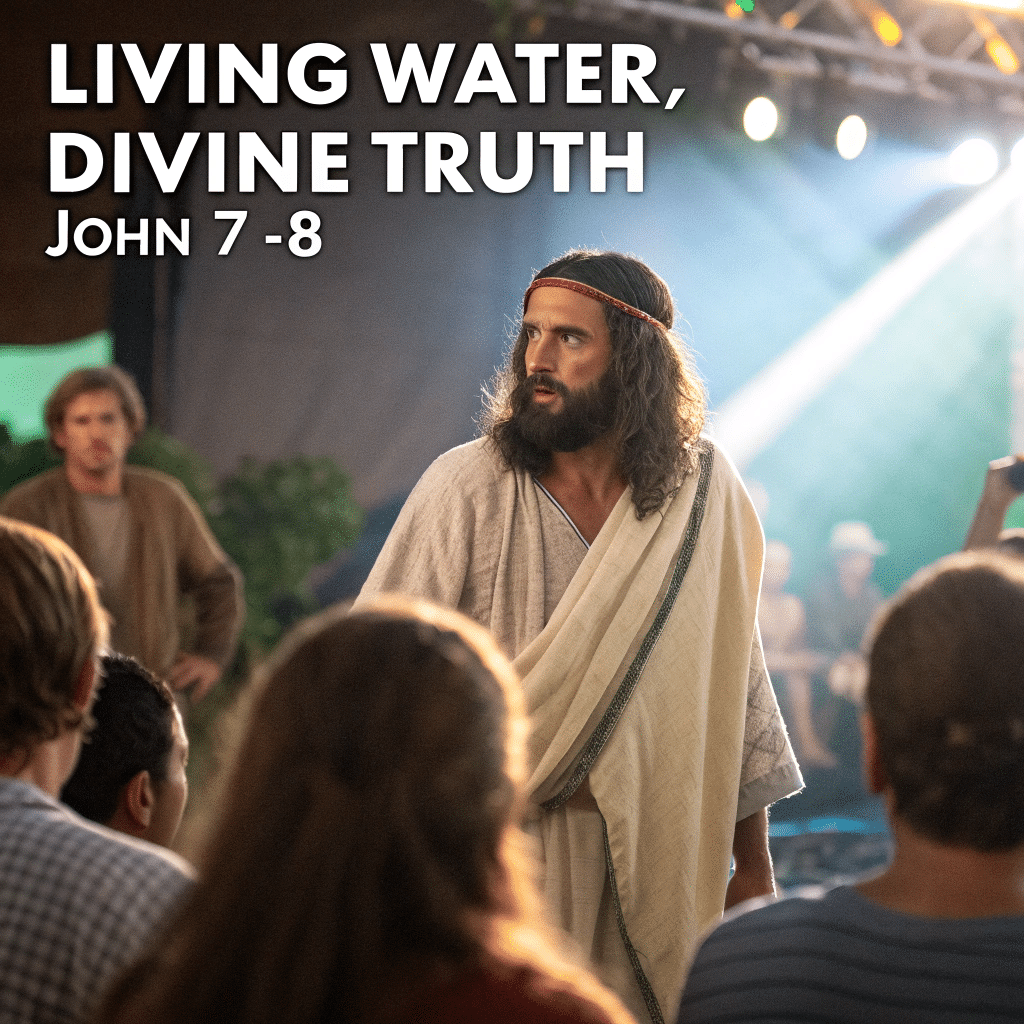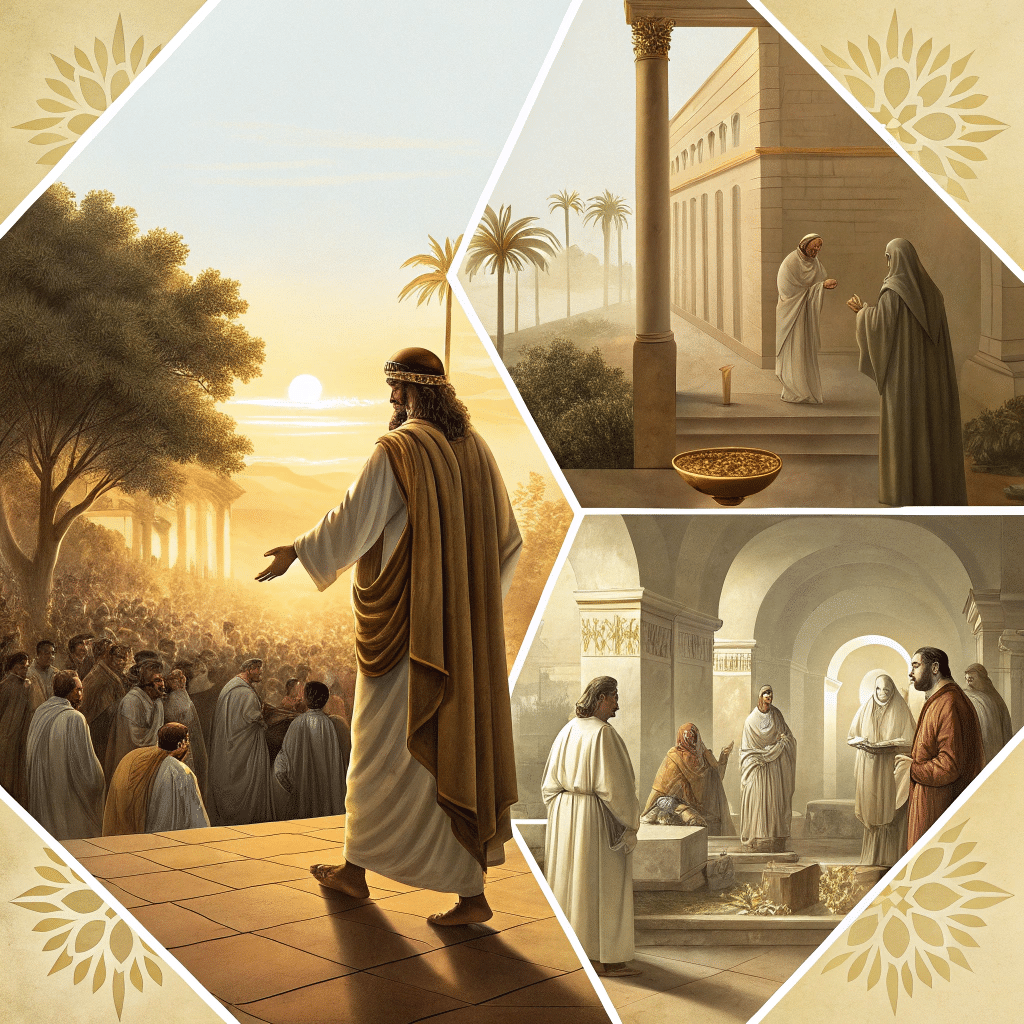The narrative of Yeshua (Jesus) during the Feast of Tabernacles, as recounted in John chapter 7, provides profound insights into his mission and teachings. This blog post will explore the key themes and events from this chapter, structured into four main sections: Yeshua and His Brothers, Teaching at the Temple, The Invitation on the Last Great Day, and The Example of His Teaching.
Yeshua and His Brothers
The story begins with Yeshua walking in Galilee, avoiding Judea due to the threats against his life. His brothers challenge him to go to Judea and reveal his works to the world, expressing their disbelief in him. Yeshua responds, stating, “My time is not yet come, but your time is always ready” (John 7:6). This exchange highlights the contrasting ambitions of his brothers, who seek recognition and glory, versus Yeshua’s humble mission.
Yeshua’s reluctance to go openly to the feast reflects his understanding of the timing of his mission. He later goes to the feast secretly, where he is met with mixed opinions from the crowd. Some see him as a good man, while others accuse him of deception. This division among the people illustrates the varying perceptions of Yeshua’s identity and mission.
Teaching at the Temple
In the midst of the feast, Yeshua teaches in the temple, astonishing the Jews with his knowledge despite having never formally learned. He asserts, “My doctrine is not mine, but his that sent me” (John 7:16), emphasizing that his teachings come from God. Yeshua challenges the religious leaders, reminding them of their failure to uphold the law, and questions their intentions in seeking to kill him.
He further explains the importance of righteous judgment, urging the people not to judge by appearances but to seek the truth. This call to discernment is crucial for understanding his teachings and recognizing the truth of his mission. Yeshua’s teachings emphasize humility, the pursuit of God’s glory, and the necessity of aligning one’s will with God’s.
The Invitation on the Last Great Day
On the last day of the feast, Yeshua extends an invitation to those who are thirsty, saying, “If any man thirst, let him come unto me and drink” (John 7:37). He promises that those who believe in him will have rivers of living water flowing from within them. This metaphor of living water symbolizes the Holy Spirit and the spiritual sustenance that Yeshua offers to those who seek him.

This invitation is not just for physical thirst but addresses the deeper spiritual longing within every individual. Yeshua’s offer of living water signifies the transformative power of faith and the fulfillment that comes from a relationship with him.
A Perfect Example of His Teaching
The narrative continues with a powerful example of Yeshua’s teachings through the story of a woman caught in adultery. The scribes and Pharisees bring her before Yeshua, seeking to trap him. Instead of condemning her, Yeshua challenges her accusers, stating, “He that is without sin among you, let him first cast a stone at her” (John 8:7). One by one, her accusers leave, and Yeshua, showing compassion, tells her, “Neither do I condemn thee: go, and sin no more” (John 8:11).
This encounter encapsulates Yeshua’s mission of mercy and redemption. He does not condone sin but offers forgiveness and a new beginning. His response reflects the heart of his teachings: love, compassion, and the call to a transformed life.
Conclusion
The teachings of Yeshua during the Feast of Tabernacles reveal profound truths about faith, humility, and the nature of God’s love. His interactions with his brothers, his teachings in the temple, and his compassionate response to the woman caught in adultery all illustrate the core of his message: a call to seek God, to judge righteously, and to embrace the living water that brings eternal life.
As we reflect on these teachings, we are challenged to consider our own lives. Are we seeking to glorify God in our actions? Are we willing to share the living water with those around us? Yeshua’s message is as relevant today as it was then, inviting us to experience the transformative power of his love and grace.





